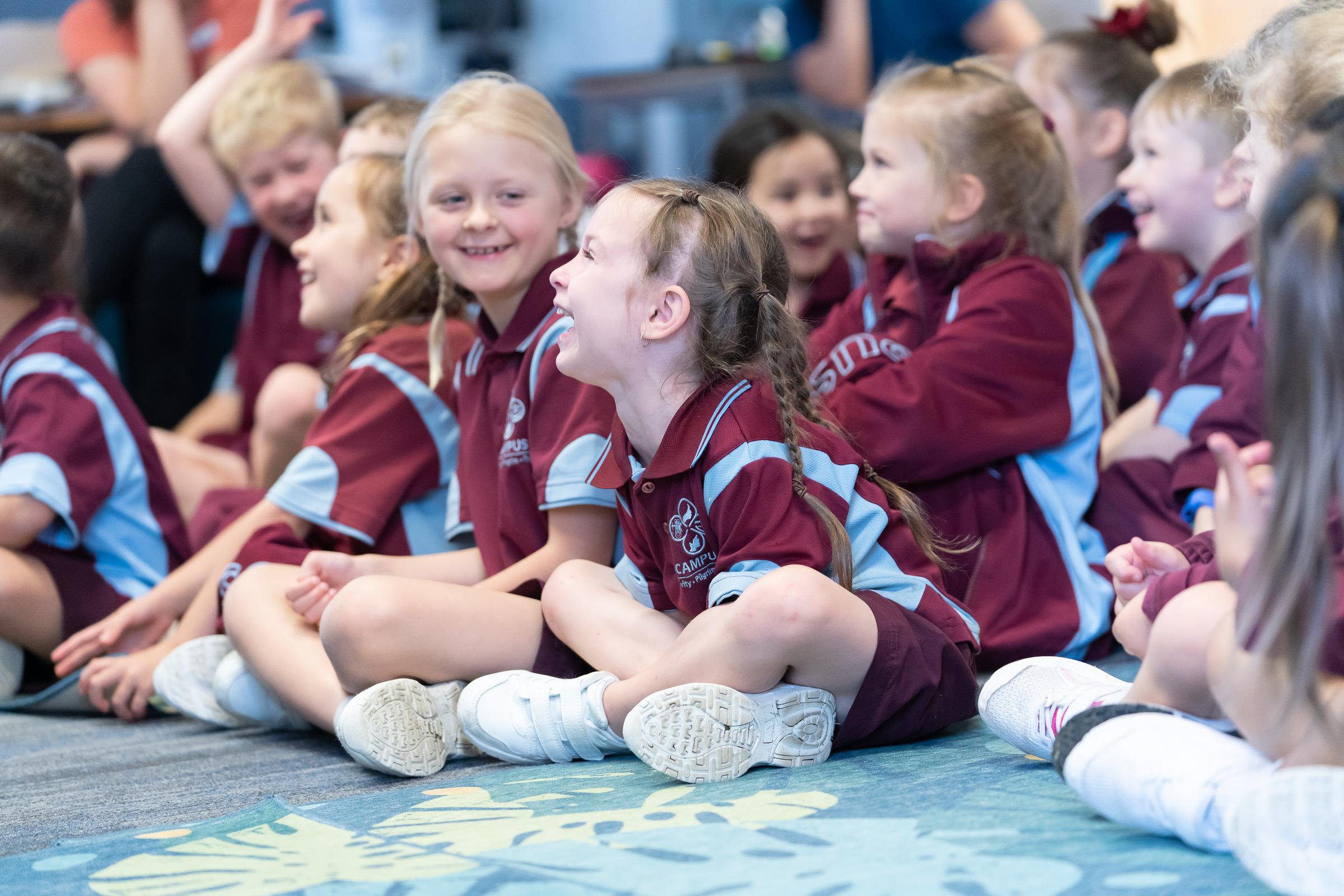
Wellbeing
Kimochis – Year 2
This term our Year 2 class has continued to work through the Kimochis program “The Protective Three”. After our focus on Grateful, we have been looking at Hope over the last three weeks and what it means to be Hopeful.
Hopeful: Hope is such a simple word that can mean so much, especially when you are going through a difficult time. Hope can bring focus and goals, and help to solve problems. Hope is an expectation that something will happen.
Hope is different from wishing. Hope combines the willingness to achieve goals and create pathways and strategies to overcome obstacles that may arise. Hope is a combination of the will and the way to achieve our goals.
When we can see and imagine a positive future we feel motivated to get there, we are more likely to be proactive in taking steps to achieve those goals.
How does being hopeful affect us?
- It reduces anxiety
- Helps us learn the importance of a “goals” mindset
- Protects the brain against anxiety
- Improves physical health
- Improves academic and athletic performance
- Healthier relationships
- Helps us recognise desires for life and dreams to achieve.
Everyday Resilience Program
This term our Year 3/4 classes have started a new Friendship program called “Everyday Resilience” with Michelle Mitchell. Michelle is an Australian author, educator, and speaker who offers students practical strategies for managing friendships. Each week the students watch a short clip delivered by Michelle, followed by a discussion and a worksheet on the topic discussed.
So far we have covered the following:
- How to be a 5-star friend as well as how to support others that may be going through a difficult time.
- How to “Push back with Truth”. We talked about how you can’t beat meanness by being mean back. Mean words + mean words don’t make things better – they usually make things worse. Instead, we talked about how to push back with truth – short, simple statements of truth, rather than more words of meanness. We talked about the fact that we can’t control what other people say and do, but WE CAN control what we do and how we respond.
- How to handle gossip well. Gossip is another name for deliberately passing on information that might be unkind or untrue. We were encouraged to be a “No Drama Llama” and we looked at four things we can do if someone is gossiping, to make sure we don’t invite or associate with “drama” (gossip). We also discussed the saying “Gossip dies the moment it hits a wise person’s ears”.
- How to stand alone – when we are having friendship issues, to have the courage to look for new friends. This takes time and at times we may need to spend time alone. This is okay and there’s nothing wrong with finding an activity to do by ourselves.
- How to “Use other tricks to combat meanness” to give students a range of tools to use if others are being mean towards them. Some options include:
- Using humour to diffuse things
- Staying with a group of friends and near supervised play areas
- Build confidence by doing a sport/activity
- Keep a journal of what is happening (facts) and your reaction (feelings)
- Ignore the person – take their power away by not reacting to them.
Michelle also has a website with information and resources available for parents:
Warm regards,
Jenni Forder
Pastoral Care Worker
The Fathering Project
Communication with your Kids
Good conversation with your children often occurs when you are side-by-side, such as driving to school or sport, walking together, or doing the dishes. Side by side chats are usually casual and provide the perfect opportunity to really talk.
Good Questions
Asking open-ended questions can help you to get to know your children better – how they are feeling, what they like and dislike, their opinions and ideas, and more importantly how they are coping each day.
For more information on how to have good conversations with your children, including a list of top tips for open communication, see the information below.
If any fathers or father figures have not joined the Pilgrim School Dad’s Portal, please scan this QR code.
This portal is for you to access a number of resources, information, videos, and podcasts on ideas to assist you in the fathering journey. As this portal is exclusive to our school community, it is also a place where we can inform you of upcoming Fathering Project Events that we are running at the school.
If you would like to know more about the Fathering Project, please do not hesitate to get in contact.
Kind regards,
Brett Middleton
Wellbeing Coordinator


